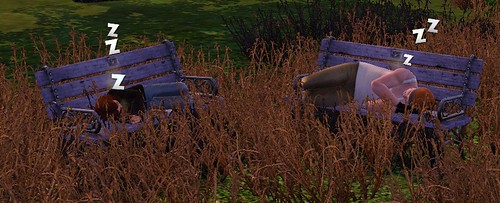ISTE annual conference: an overwhelming experience
I’m currently at the International Society of Technology in Education’s (ISTE) annual conference in Washington, DC. There are about 18,000 K12 teachers, tech staff, and administrators, university faculty, and vendors attending this conference. We’re all here for a similar purpose: to find ways to improve learning through the use of contemporary technology. It’s an overwhelming experience that I’ll be writing about in many blog posts.
I’ll start with two of the three keynote speakers (the third hasn't spoken yet). Sunday night we heard from Malcolm Gladwell, author of The Tipping Point, Blink, and Outliers. He spoke about the importance of failure in education—and how we need to stop viewing failure as, by definition, a bad thing. He used Fleetwood Mac and sports as examples of successful entities that failed before they succeeded. You can listen to his talk beginning at 54:30, NECC 2009 keynote.
Today’s keynote is a panel debate: “Resolved: that bricks and mortar schools are detrimental to learning.” A pre-talk “clicker” survey indicated that the attendees were against the resolution 2 to 1. After listening to the arguments, the survey indicated that nearly 75% were against the resolution. A video of the debate, moderated by Robert Siegel from NPR, should be available shortly here.
I’m finding this debate fascinating, in part, because I conducted my undergraduate course, “Contemporary ideas in information technology,” via desktop videoconferencing last evening. There are 9 students in the class; most are working at least part time; and about half are non-traditional students. One of the students orally summarized a chapter in one of the books that we are reading for the class after which I led the remainder of the discussion. The rest of the class used the chat space as a back channel to discuss what he was talking about while listening. They also used the chat space to participate in the class. I asked them to discuss their experience at the end of class. More on this in my next blog post.
I’ll start with two of the three keynote speakers (the third hasn't spoken yet). Sunday night we heard from Malcolm Gladwell, author of The Tipping Point, Blink, and Outliers. He spoke about the importance of failure in education—and how we need to stop viewing failure as, by definition, a bad thing. He used Fleetwood Mac and sports as examples of successful entities that failed before they succeeded. You can listen to his talk beginning at 54:30, NECC 2009 keynote.
Today’s keynote is a panel debate: “Resolved: that bricks and mortar schools are detrimental to learning.” A pre-talk “clicker” survey indicated that the attendees were against the resolution 2 to 1. After listening to the arguments, the survey indicated that nearly 75% were against the resolution. A video of the debate, moderated by Robert Siegel from NPR, should be available shortly here.
I’m finding this debate fascinating, in part, because I conducted my undergraduate course, “Contemporary ideas in information technology,” via desktop videoconferencing last evening. There are 9 students in the class; most are working at least part time; and about half are non-traditional students. One of the students orally summarized a chapter in one of the books that we are reading for the class after which I led the remainder of the discussion. The rest of the class used the chat space as a back channel to discuss what he was talking about while listening. They also used the chat space to participate in the class. I asked them to discuss their experience at the end of class. More on this in my next blog post.








